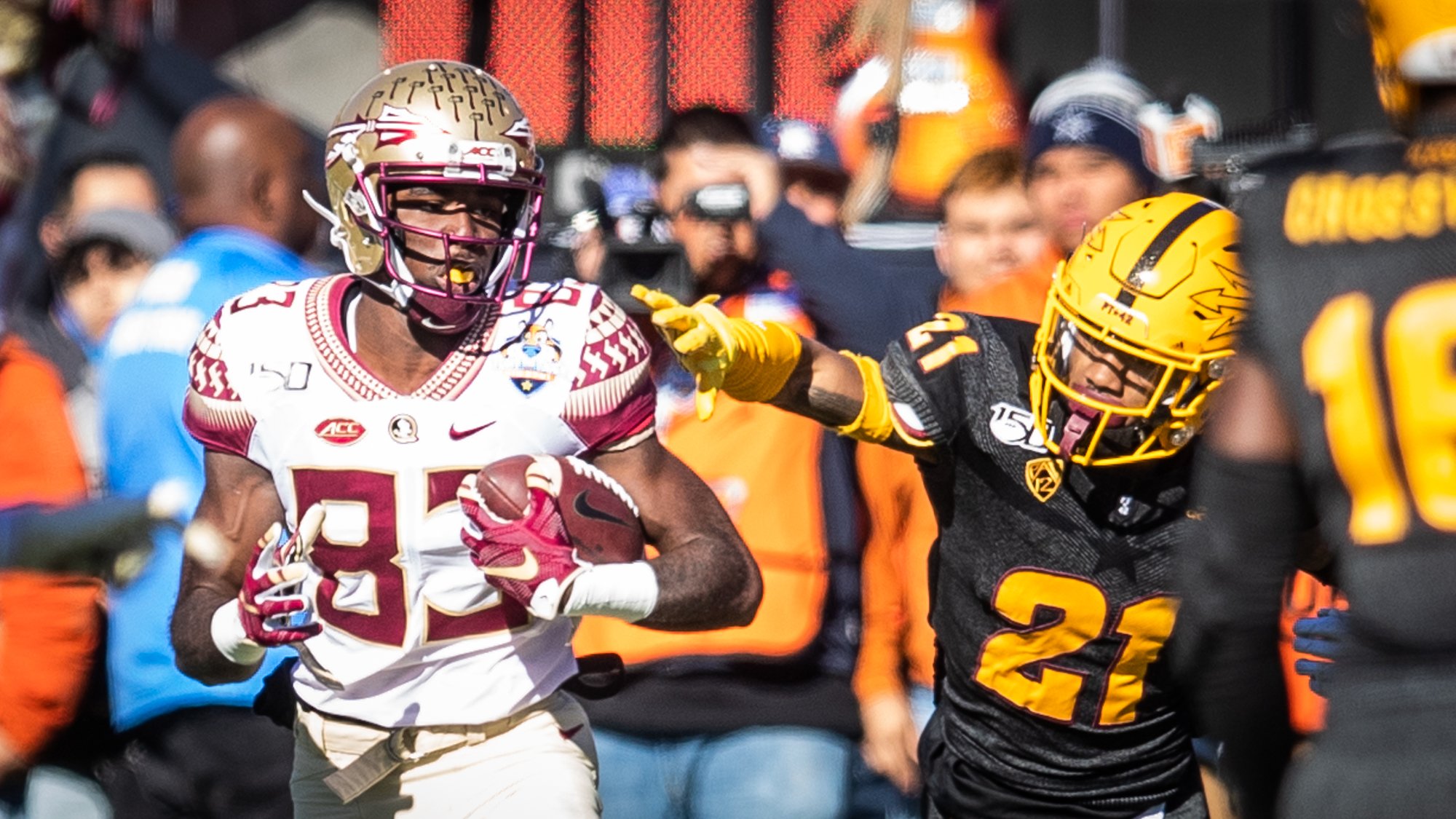ACC Partnership with Pac-12 Could Lead to Championship Game in Vegas
Posted on: July 7, 2022, 07:01h.
Last updated on: July 7, 2022, 12:37h.
So, the college sports world has remained upside down since UCLA and Southern California pulled their shocking move to the Big Ten a week ago. It seems as if there are as many rumors about the next big move as there are schools that would be impacted, and there’s at least one rumor that includes Las Vegas.

No, it doesn’t involve UNLV joining the Pac-12 or Big 12, although there’s probably some rumor out there including that. (Sidenote: Nothing against the Running Rebels, but they have a better chance of getting Randall Cunningham or Ickey Woods back in uniform than they have of getting an invite to a major football conference).
Instead, it involves the remnants of the Pac-12 joining what’s being called a “loose partnership” with the ACC, and the top teams from those conferences playing in a championship game that would take place in Las Vegas, which is currently where the annual Pac-12 championship game takes place.
Oregon-based sportswriter John Canzano has been ahead on reporting this for the past couple of days. As he noted Wednesday, one of the reasons an ACC/Pac-12 joint venture of some kind makes sense is because the ACC does reach 10 markets that have more than 1 million television households each.
A counterpoint to that is that market size doesn’t have the same cache. That’s since apps and streaming services have helped to expand the audience that can watch games.
ACC in the Spotlight
The ACC is both at a crossroads and in the crosshairs. It’s the No. 3 conference right now, squarely behind the SEC and the Big Ten. It also has schools that could easily slide into either conference, which could leave the rest of the ACC in the rubble.
One thing that has prevented that from happening, for now, is a grant-of-rights agreement between the schools. It’s a poison pill designed to deter defections by giving the conference rights to media revenues even if the school left for another league.
However, the revenue gap between the ACC and the SEC and Big Ten is growing wider. If it gets to the point where a school could buy out its grant-of-rights agreement, then the ACC could be in trouble.
Another potential issue for the ACC is Notre Dame. The Fighting Irish are ACC members in most sports. But in football, the traditional power program has retained its independence. There, it enjoys a loose partnership of sorts. Notre Dame sets aside a certain number of games each year to play ACC schools, and it can take a postseason bowl berth slotted for the conference.
The Fighting Irish are in that position because of their television contract with NBC. However, as the top of the college football pyramid shrinks, Notre Dame may finally have to choose between the football independence it has fought for years to maintain and a chance to remain a relevant player for a national championship.
If that happens, it may mean Notre Dame bolts for the Big Ten and sets off another seismic wave across the college football landscape.
Could Sports Betting Factor in Realignment?
For now, this really isn’t a sports betting story. This is a story that involves a few dozen major colleges and the major television networks. It will likely end with the networks giving more money to a smaller number of schools.
But who’s to say that a sportsbook couldn’t get involved. Yes, the NCAA has not done what its fellow plaintiffs in the landmark Professional and Amateur Sports Protection Act (PASPA) case have done by becoming full-on partners with legally licensed sports betting operators. But the college athletics landscape is changing dramatically before our eyes.
In addition to the seemingly never-ending rounds of realignment, student-athletes now have the ability to capitalize on their talent and fame through name-image-and-likeness (NIL) deals. For some, it’s a six-figure or more payday, and it’s a further erosion of the image that college sports are amateur events.
The wall between college sports and betting companies is already showing cracks. Schools like Colorado (PointsBet) and LSU (Caesars) have signed partnership deals with sportsbooks, and Caesars and Barstool Sports have established relationships with postseason bowl games.
So, could we see a time when a sportsbook approaches a conference – say, a conference that’s on the brink of going under – with a partnership offer that would give the schools a new revenue stream that could help bridge the gap between its peers?
At this point, it’s doubtful something like that would happen in the near future. But then again, this time last week, no one thought USC and UCLA would leave the Pac-12.
Related News Articles
Mayweather and McGregor Feuding Again After Rejected Training Invitation
Oregon Online Sports Betting May Get Delayed Start
Most Popular
Genovese Capo Sentenced for Illegal Gambling on Long Island
NBA Referees Expose Sports Betting Abuse Following Steve Kerr Meltdown
UPDATE: Former Resorts World & MGM Grand Prez Loses Gaming License
VEGAS MYTHS RE-BUSTED: The Traveling Welcome to Las Vegas Sign
Most Commented
-
UPDATE: Whiskey Pete’s Casino Near Las Vegas Closes
— December 20, 2024 — 33 Comments -
Caesars Virginia in Danville Now Accepting Hotel Room Reservations
— November 27, 2024 — 9 Comments -
UPDATE: Former Resorts World & MGM Grand Prez Loses Gaming License
— December 19, 2024 — 8 Comments -
FTC: Casino Resort Fees Must Be Included in Upfront Hotel Rates
— December 17, 2024 — 7 Comments
















No comments yet